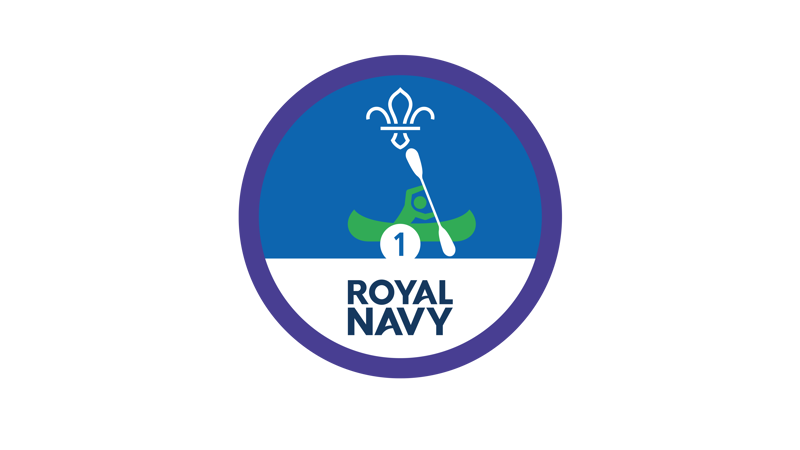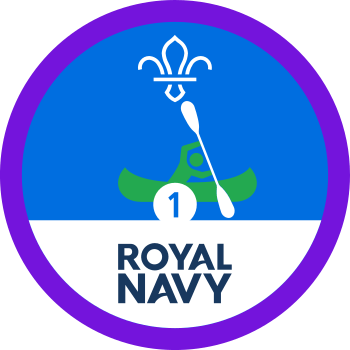
Yachting
What to expect
Yachts are a type of sailing boat that are often quite large. Onboard, they usually have more protection from the weather for the crew, such as a small cabin that can be slept in overnight. Yachts are perfect for dealing with changeable weather conditions at sea and for travelling longer distances.
It takes multiple people to control the sail to move the yacht, so teamwork is essential. This is a natural step up from keelboating and a great way to put your cooperation and coordination skills to the test.
What you’ll learn
Teamwork, and lots of it! Yachts are big and very expensive, so you and your team need to be extra careful manoeuvring out of the marina or dock and coming up alongside things. Clear communication, responsibility for roles and quick reactions are all needed, as is the ability to keep a cool head and problem solve. That’s a lot to do, but that means there’s a lot you can take away from this experience too.
Fun facts
Ironically, bearing in mind how valuable they are now, the yacht was originally designed by the Dutch Navy as a sort of ocean-going police car to catch pirates! Charles II was the first person to keep a yacht as his own personal vessel, and ever since then the majority of yachts have been used for racing and leisure.
Handy hints
- There’s a ‘yacht’ to learn. On top of the challenge of sailing your yacht, yachting also requires nifty nautical navigation skills. It might be useful to work on your Sea Navigation Activity Badge before you set sail.
- Step it up. Yachts can be trickier to sail and less forgiving than smaller dinghies. Try going dinghy sailing first to polish your skills.
Safety
You must always:
- Complete a risk assessment
- Have the right ratios of number of adults to provide suitable supervision
- Set up an InTouch process
- Know what to do in an emergency
- Share information with parents and carers with an activity information form
- Get approval from your commissioner
Be safe outdoors:
- Check the weather forecast
Be safe in water:
Everyone should be able to swim 50 m wearing the clothing or equipment for the activity. Non-swimmers will need additional support.
Water can be dangerous - be aware of the risks.
The category of water depends on how safe the water is. Use our waterways directory to check.
Be sure to manage the group when near water, keeping everyone safe.
Make sure that all equipment is fit for purpose and in good condition:
Everyone must wear a life jacket or buoyancy aid.
The instructor must make sure boats are seaworthy.
There are regulations you must follow if you are hiring a boat.
Joint activities with other organisations:
- This activity can be run jointly with Girlguiding.
- This activity can be run with other organisations.
This activity can be led by you or someone else in Scouts:
The activity leader must have an adventurous activities permit with the right level and permissions for your group.
You don't need a permit for activities on Class C waters (safe, inland water less than 100 m wide).
Where the group is entirely members over the age of 18 the permit scheme does not apply, please follow the rule 9.8 adult groups.
You can go to a centre or use an activity leader who is not part of Scouting:
You must find a suitable provider who meets the following requirements:- The centre/instructor should hold one of these: (If the provider is AALA exempt)
- Royal Yachting Association - qualified to the standard required by the RYA for the boat and environment being used
The provider must have public liability insurance.
Guidance
Reflection
Yachting was a great way to get the team working together and give everyone responsibility for their respective roles. People have been using different sailing boats for thousands of years to move themselves and their goods across the globe. What might happen if you tried to sail a yacht on your own? Why is it extra important that each member of your crew takes their role seriously?
Sailing without your team would be extremely difficult. What other team activities are too tough to do alone? Lots of different tasks rely upon solid teamwork and trust between teammates, so these are always great skills to work on.
- Yachting can often be adapted so more people can give it a go. Many outdoor centres have facilities that cater for people with additional needs and experienced instructors to help everyone achieve their goals.
- Yachts are large with plenty of space on board. They can also be adapted in many different ways to suit different needs. Try looking for a specialist centre in your area or get in touch early with your provider to make sure they can provide a session to suit you and your group.
All Scout activities should be inclusive and accessible.
Yachting is also a great way to learn and test out the skills needed for the Scouts Air or Sea Navigation Activity Badge.





